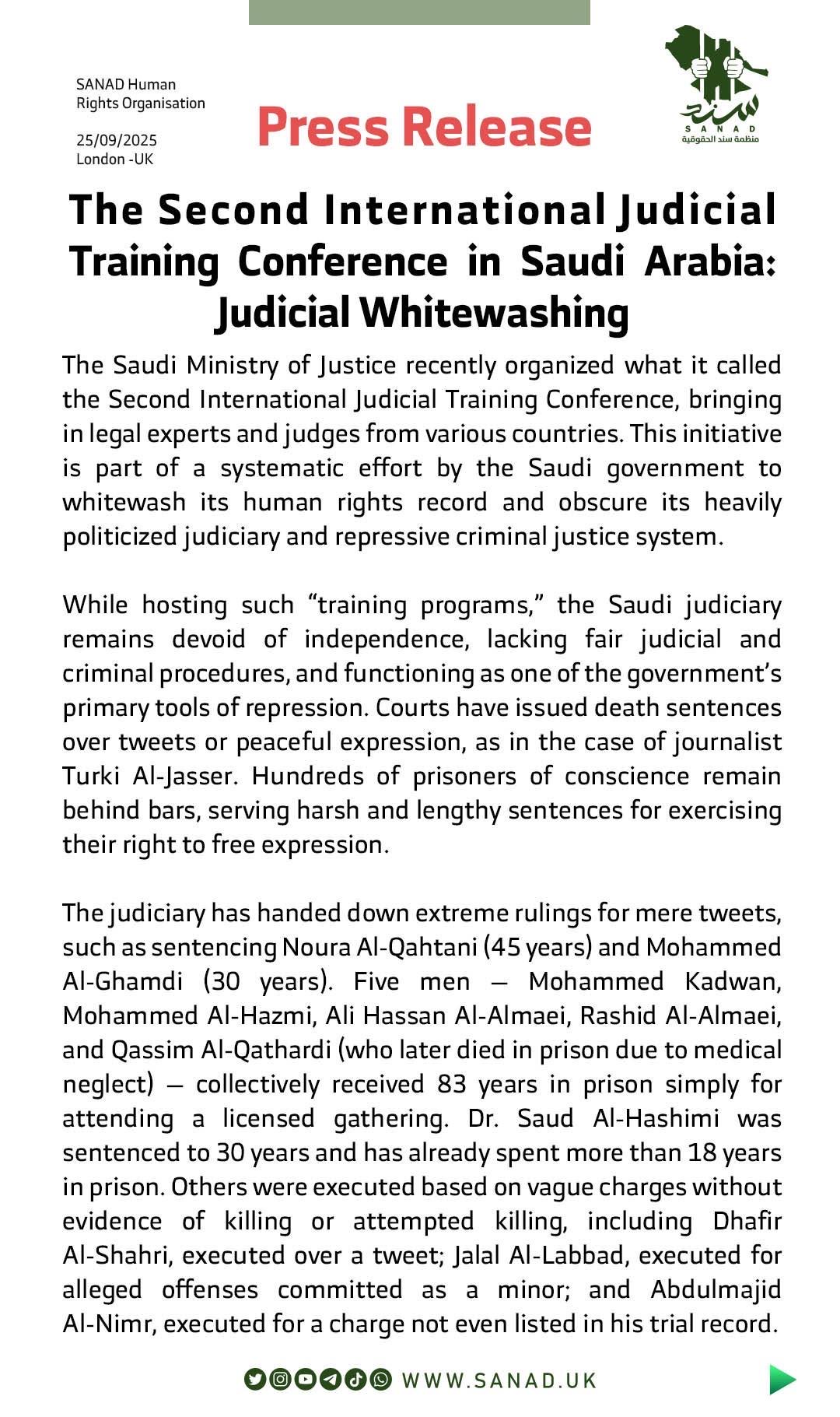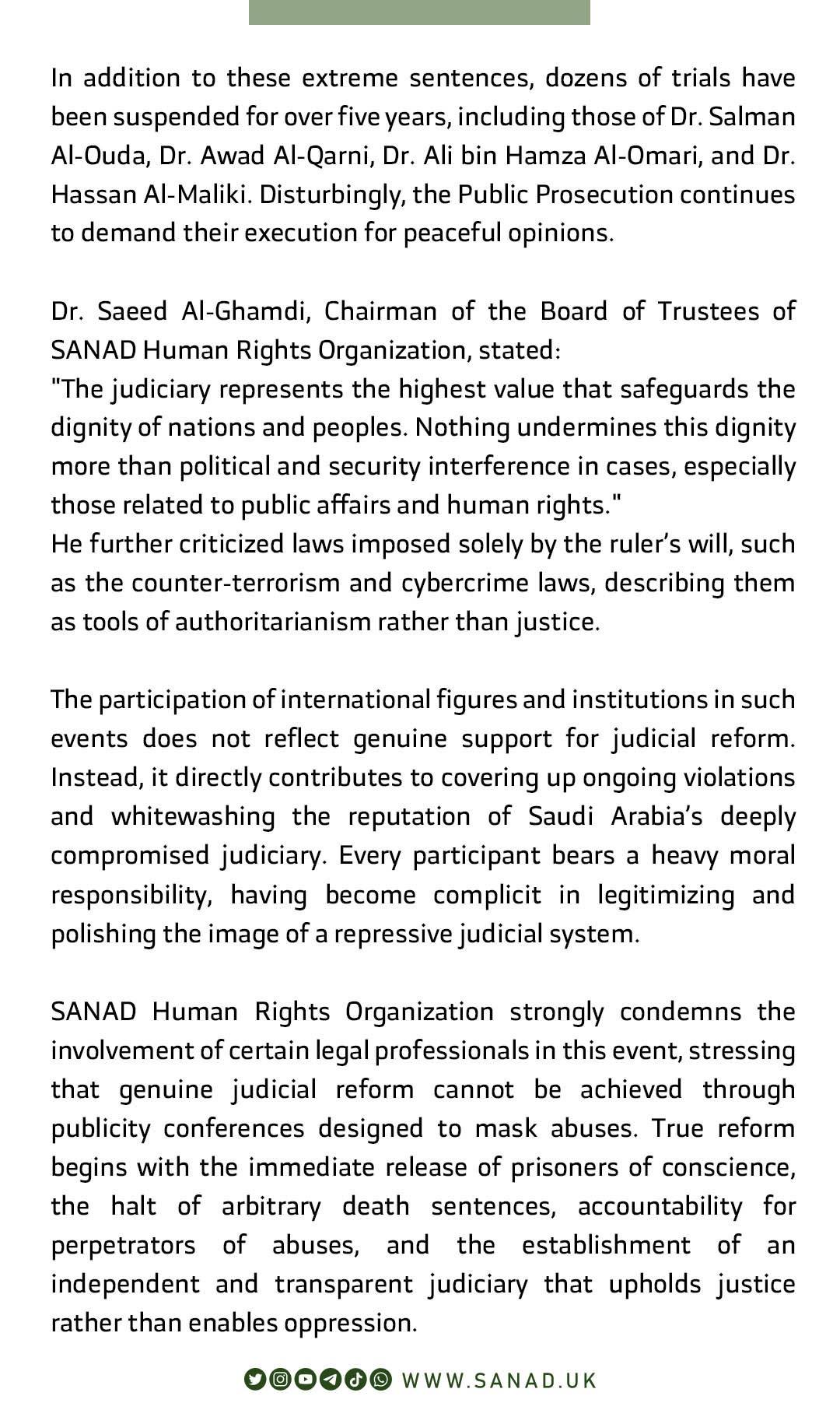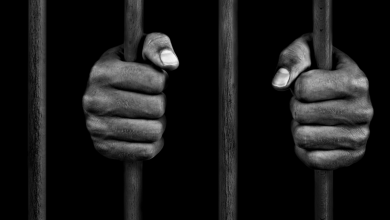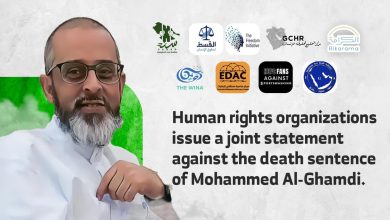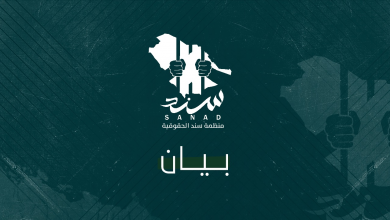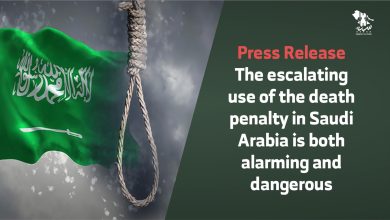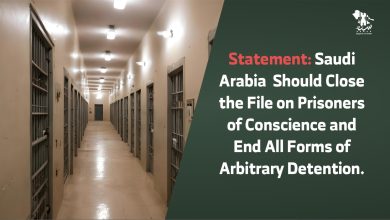The Second International Judicial Training Conference in Saudi Arabia: Judicial Whitewashing
The Saudi Ministry of Justice recently organized what it called the Second International Judicial Training Conference, bringing in legal experts and judges from various countries. This initiative is part of a systematic effort by the Saudi government to whitewash its human rights record and obscure its heavily politicized judiciary and repressive criminal justice system.
While hosting such “training programs,” the Saudi judiciary remains devoid of independence, lacking fair judicial and criminal procedures, and functioning as one of the government’s primary tools of repression. Courts have issued death sentences over tweets or peaceful expression, as in the case of journalist Turki Al-Jasser. Hundreds of prisoners of conscience remain behind bars, serving harsh and lengthy sentences for exercising their right to free expression.
The judiciary has handed down extreme rulings for mere tweets, such as sentencing Noura Al-Qahtani (45 years) and Mohammed Al-Ghamdi (30 years). Five men — Mohammed Kadwan, Mohammed Al-Hazmi, Ali Hassan Al-Almaei, Rashid Al-Almaei, and Qassim Al-Qathardi (who later died in prison due to medical neglect) — collectively received 83 years in prison simply for attending a licensed gathering. Dr. Saud Al-Hashimi was sentenced to 30 years and has already spent more than 18 years in prison. Others were executed based on vague charges without evidence of killing or attempted killing, including Dhafir Al-Shahri, executed over a tweet; Jalal Al-Labbad, executed for alleged offenses committed as a minor; and Abdulmajid Al-Nimr, executed for a charge not even listed in his trial record.
In addition to these extreme sentences, dozens of trials have been suspended for over five years, including those of Dr. Salman Al-Ouda, Dr. Awad Al-Qarni, Dr. Ali bin Hamza Al-Omari, and Dr. Hassan Al-Maliki. Disturbingly, the Public Prosecution continues to demand their execution for peaceful opinions.
Dr. Saeed Al-Ghamdi, Chairman of the Board of Trustees of SANAD Human Rights Organization, stated:
“The judiciary represents the highest value that safeguards the dignity of nations and peoples. Nothing undermines this dignity more than political and security interference in cases, especially those related to public affairs and human rights.”
He further criticized laws imposed solely by the ruler’s will, such as the counter-terrorism and cybercrime laws, describing them as tools of authoritarianism rather than justice.
The participation of international figures and institutions in such events does not reflect genuine support for judicial reform. Instead, it directly contributes to covering up ongoing violations and whitewashing the reputation of Saudi Arabia’s deeply compromised judiciary. Every participant bears a heavy moral responsibility, having become complicit in legitimizing and polishing the image of a repressive judicial system.
SANAD Human Rights Organization strongly condemns the involvement of certain legal professionals in this event, stressing that genuine judicial reform cannot be achieved through publicity conferences designed to mask abuses. True reform begins with the immediate release of prisoners of conscience, the halt of arbitrary death sentences, accountability for perpetrators of abuses, and the establishment of an independent and transparent judiciary that upholds justice rather than enables oppression.
